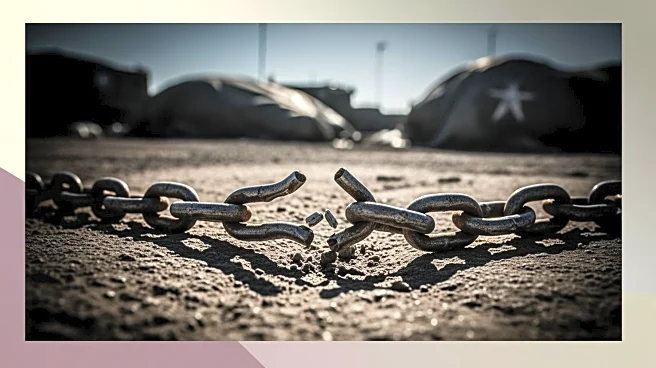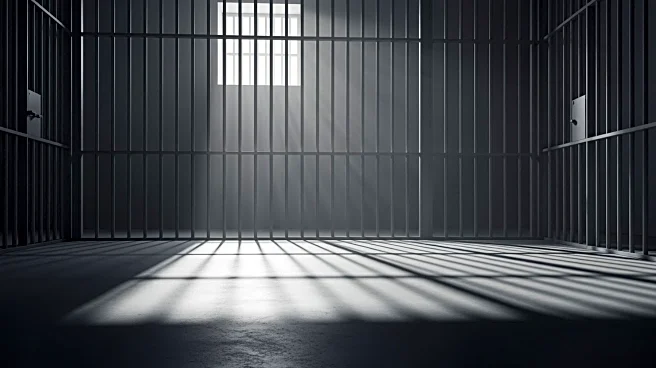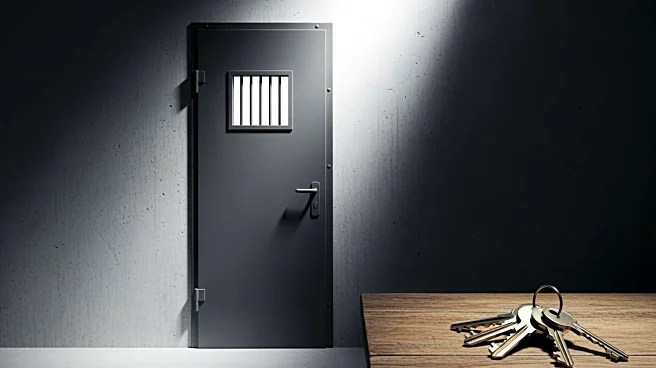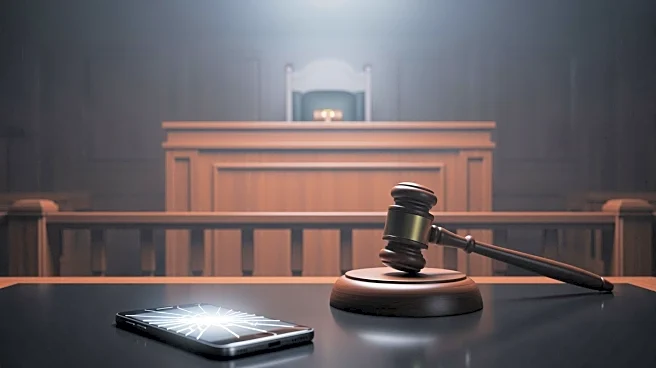What's Happening?
The Venezuelan government, led by Nicolás Maduro, has announced the capture of alleged mercenaries purportedly linked to the U.S. Central Intelligence Agency (CIA). The regime accuses the United States
and Trinidad and Tobago of orchestrating military exercises to provoke a confrontation in the Caribbean. This announcement comes as the U.S. has increased its military presence in the region, reportedly to combat drug cartels. Venezuela claims these actions are part of a 'false-flag operation' aimed at justifying military intervention. The Venezuelan government has not provided evidence or details about the arrests, such as the number of individuals involved or their nationalities.
Why It's Important?
This development highlights escalating tensions between Venezuela and the United States, with potential implications for regional stability. The U.S. military buildup in the Caribbean, including the deployment of troops and naval assets, underscores the seriousness of the situation. If the allegations are true, it could lead to increased diplomatic strain and potential military conflict. The accusations also involve Trinidad and Tobago, suggesting a broader regional impact. The situation could affect U.S. foreign policy and its relations with Latin American countries, as well as influence international perceptions of U.S. military actions.
What's Next?
The U.S. has not yet responded to the allegations, and it remains to be seen how the international community will react. Potential diplomatic efforts or sanctions could be considered by the U.S. or other nations. The situation may lead to increased military readiness in the region, with both Venezuela and the U.S. potentially preparing for further developments. Observers will be watching for any official statements from the U.S. government or the CIA, as well as any evidence Venezuela might present to support its claims.
Beyond the Headlines
The accusations against the U.S. and Trinidad and Tobago raise questions about sovereignty and the use of military force in international relations. The situation also touches on historical patterns of U.S. intervention in Latin America, which could influence public opinion and policy decisions. The involvement of the CIA, if confirmed, would add a layer of complexity regarding intelligence operations and their role in foreign policy.








